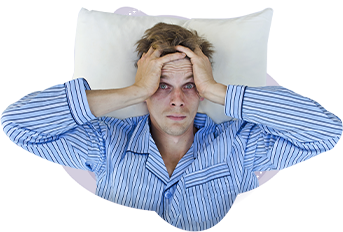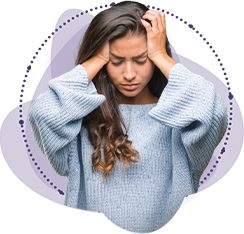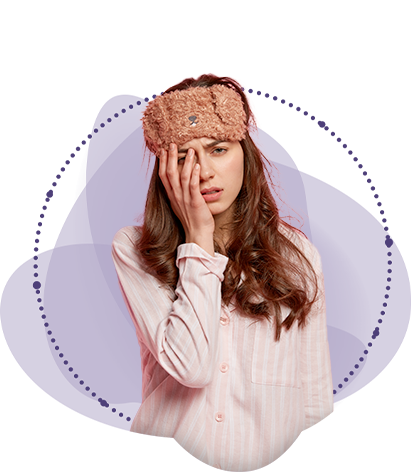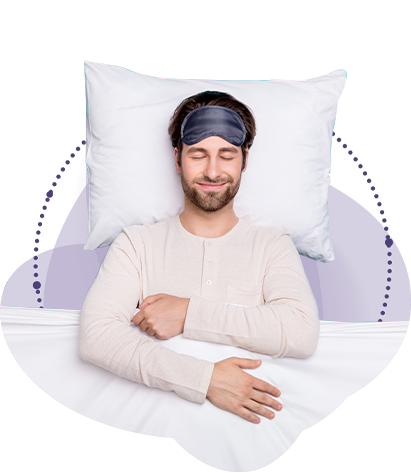
Does a disturbed sleep affect your daily activities?
Sleep disturbances seem to be a common problem. The term is used to define problems getting and staying asleep, and of feeling unrested upon waking. Disturbed sleep is among the most common symptoms in patients with anxiety disorders and has detrimental effects on patients’ daily living skills and quality of life.
What are the causes and effects of disturbed sleep?
Which are the symptoms associated with mild anxiety?

Restlessness
Restlessness is experienced as an inability too reimain at rest, difficulties concentrating, not being able to relax or being constantly uneasy.

Difficulty concentrating
Difficulty concentrating could lead to problems performing at work and might be perceived as distressing by individuals who are concerned about the possible potential negative consequences of being unable to complete an important task.

Palpitations
Palpitations are an increased or abnormal awareness of heartbeat
The perceived sensation can be that of a pounding feeling in the neck, a feeling of rapid fluttering or a flip-flopping in the chest.

Gastrointestinal problems
Mood and anxiety disorders can be associated with Gastro Oesophageal Reflux Disease (GORD) - related symptoms such as acid regurgitation and heartburn.




